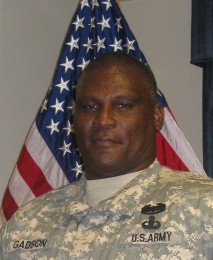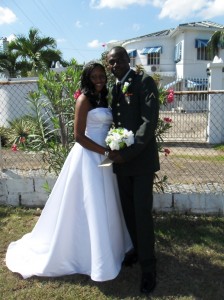 By COL Greg Gadson, AW2 Director
By COL Greg Gadson, AW2 Director
When I was injured, I had my heart set on staying in the Army, even though I knew I would be found unfit. I’m a Soldier—I’ve been a Soldier for 22 years, and my desire to serve didn’t disappear when an IED exploded under me, costing me my legs. I knew I wouldn’t be a field artillery officer out on the gun line, but I could do something else. I wasn’t on a gun line when I got injured; I was doing what the Army needed me to do. And that’s what I’m doing now, as a COAD Soldier leading AW2—it’s what the Army needs me to do.
For Soldiers who will be found unfit for duty by a Physical Evaluation Board (PEB), Continuation on Active Duty (COAD)/Continuation on Active Reserve (COAR) is a great opportunity to continue our service. Currently, any Soldier found unfit will not be denied the opportunity to apply for COAD/COAR, and that is a great development for today’s Army.
As I started the COAD process, I had a lot of questions. Would I be “worthy” to stay in? Would I have something to contribute? I didn’t want to just hang around and draw a paycheck; I wanted to continue to do something worthwhile.
Other AW2 Soldiers considering COAD/COAR probably have similar questions. Some of you came into the Army to do a certain job, fly planes or helicopters or something equally exciting. But that doesn’t mean that’s all the Army has to offer you. As you make this decision, I encourage you to:
- Keep an open mind as you consider different MOS’s—you might be surprised about the opportunities out there for you, and you have more skills than you realize.
- Speak up for yourself. Tell the Army what you want to do–and make the Army tell you “no.” The Army wants to accommodate you and help you increase your skills and pursue opportunities.
- Use the resources available to you. For example, my AW2 Advocate and PEBLO (Physical Evaluation Board Liaison Officer) were fantastic—they kept me up to date on my requirements, appointments, and documentation.
- Talk to your mentors throughout the Army. You’ll need their recommendations as you build your case, but you’ll also appreciate their encouragement and guidance as you make these tough decisions and continue your Army career.
To the wounded Soldiers in the Guard and Reserve—my message is exactly the same. There are slight differences in the process, but you have the same opportunity to continue serving your country. And I hope you give it serious consideration.
It’s important for both COAD/COAR Soldiers and their leaders to understand that COAD/COAR Soldiers are still Soldiers, just like every other person in the Army. COAD/COAR Soldiers maintain the Army values and will still have all the Army requirements, within the limits of their physical profiles.
The Army is an institution of support for you and your Family. For me, COAD was the right choice, and I’m proud to serve in an Army that supports the people who make it strong.
Editor’s Note: Do you have a story about your personal COAD/COAR experience or advice for Soldiers considering the COAD/COAR process? Leave a comment below.




